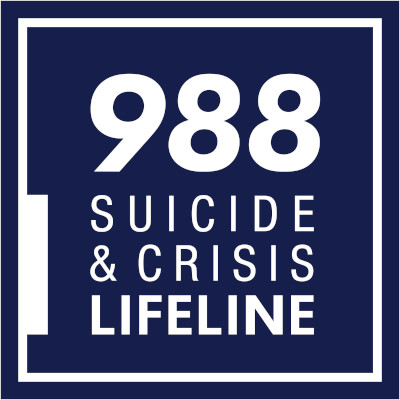CDPH Suicide Prevention Initiative
If you are experiencing a mental health crisis – call or chat 988
CDPH Suicide Prevention Initiative
Suicide is a serious public health problem that affects people of all ages. Suicide and suicide attempts affect the health and well-being of friends, loved ones, co-workers, and the community. And suicide is a difficult topic to discuss - whether you are experiencing suicidal thoughts, know someone who is, or know someone who has lost a loved one.
The Chicago Department of Public Health (CDPH) is taking on suicide prevention by building community, connection, and knowledge. A team of diverse CDPH public health professionals have joined together to become certified Question, Persuade, and Refer (QPR) Instructors through the QPR Institute to provide free in-person and virtual QPR Gatekeeper training in and across Chicago’s communities.
QPR is a recognized approach that trains everyday people from all walks of life to recognize suicide warning signs, take immediate steps to mitigate risk of a suicide attempt, and make referrals to competent professional care. QPR training is one way to build community, connectedness, and knowledge to understand the issues concerning suicide and mental health, help others in crisis, and change the conversation around suicide.
QPR Training Schedule
The QPR Training Schedule will be updated on a rolling basis:
Chicago is a Hopeful City
Feelings of hopelessness are human responses in the hard moments of life. You’re not alone.
Fortunately, hope is a teachable skill and can be incorporated in your day-to-day life. Learn to manage stress, spark joy, and take action, while strengthening your support network. Download resources that help practicing hope within yourself, your homes, and your communities below.
Healthy Chicago Podcast
Suicide Prevention & QPR
Prevención del Suicidio: Haz una pregunta, salva una vida
If you would like to schedule a QPR Training, please inquire here
CDPH is prioritizing QPR suicide prevention training for communities with the highest suicide mortality rates. While QPR is open to everyone, it is an entry-level training best suited for those without a clinical background who want to offer life-saving support. Trainings are available both in-person and virtually to meet your needs. In-person sessions require a minimum of 10 participants. Please note that team capacity is limited, and while we may not be able to fulfill every request, we will do our best to accommodate you and are happy to answer any questions.
Are you experiencing mental health-related distress or are worried about someone who may need crisis support?
Call or text 988 Suicide & Crisis Lifeline or chat 988lifeline.org to get access to 24/7/365 crisis resources and confidential, free support from a trained professional.





